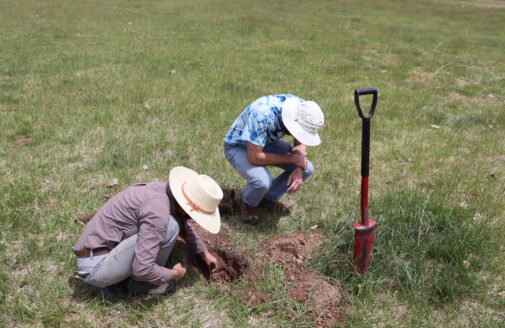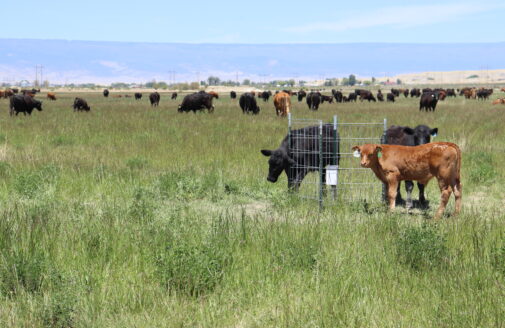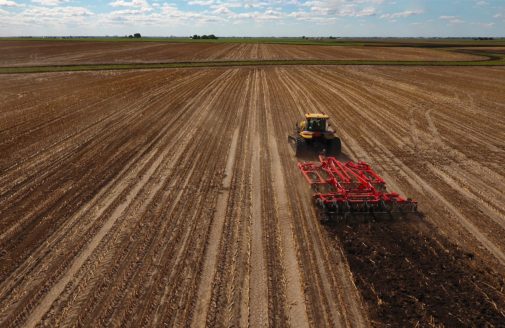Team
- Jonathan Sanderman Carbon Program Director, Senior Scientist
- Taniya RoyChowdhury Research Scientist
- Matthew Jacques Research Assistant
- Colleen Partida Research Assistant
- Doria Gordon Lead Senior Scientist, EDF
- Emily Oldfield Agricultural Soil Carbon Scientist, EDF
- Alison Eagle Senior Scientist, EDF
- Jocelyn Lavallee Agricultural Soil Carbon Scientist, EDF
- Joe Rudek Lead Senior Scientist, EDF
- Matthew Sheffer Executive Director, Hudson Carbon
- Elizabeth Forbes Research Director, Hudson Carbon
- Mark Bradford Scientific Leadership Team, Yale Center for Natural Carbon Capture
- Alexander Polussa PhD Student, Yale School of the Environment
- Shangshi Liu Postdoc, Yale Center for Natural Carbon Capture
- Louis Longchamps Assistant Professor, Cornell CALS
Although the agricultural sector is one of the largest contributors to climate change, there is enormous potential for improved management practices to position agriculture as part of the solution.
Implementing practices that sequester carbon in the soil and recapturing even a fraction of the soil carbon debt accrued over the past 12,000 years would be a significant carbon drawdown strategy. Rebuilding soil carbon stocks is also regarded as a key pillar of improving soil health and long-term agricultural sustainability.
Despite these dual benefits of managing cropland for soil carbon sequestration, farmers’ adoption rates of carbon-storing practices remain very low. Given the high corporate demand for reducing greenhouse gas emissions, a market that can connect buyers with sellers of soil carbon credits could rapidly scale adoption of carbon-friendly agricultural practices. However, a market must have strong and enforceable rules in place to ensure that credits generated are real, additional (emissions reductions would go beyond “business as usual”), and likely to lead to long-term net climate benefits.
Woodwell Climate Research Center is working with agricultural and environmental leaders to identify and close key information gaps to enable effective soil carbon markets.
Our Work
- We are systematically identifying key scientific uncertainties in emerging voluntary soil carbon markets. In collaboration with Environmental Defense Fund (EDF), we have surveyed existing voluntary carbon market protocols and found a high level of variability. In a report synthesizing the current unregulated voluntary carbon market, we argued that different methods, protocols, and standards can lead to a wide range in the quality and quantity of credits generated and transacted. In a policy brief in the journal Science, we outlined how a regional approach supported by an independent actor such as the USDA can overcome many of the current challenges these voluntary markets face in producing credible emission reductions.
- We are conducting and supporting new scientific research investigating the carbon impact of cover cropping. In collaboration with EDF, the National Corn Growers Association, Iowa Corn Grower’s Association, Iowa Soybean Association, and a cooperative of 18 farmers in Iowa, we are evaluating the net impacts of 5-9 years of winter cover cropping on the quantity and stability of soil carbon. To do this, we are measuring soil carbon and associated soil properties down to one meter across the strip trials these farmers are maintaining on their farms. The goal of this study is to provide an estimate of measured change in soil carbon, to use as a reference for realistic carbon sequestration to compare against modeled estimates.
- We are testing soil health indicators to track local, short-term changes indicative of soil carbon gains. Changes in soil carbon can be very small, and hard to measure and detect at the local scale, even when change is appreciable over a region. Because soil organic carbon can take a decade or longer to respond to a change in agricultural practices, measuring soil health properties can help us understand if a system is heading in the right direction in the short term. With EDF’s support, and in collaboration with Corteva Agriscience, we are exploring the spatial patterns of key soil health indicators across dozens of farms in the Midwest that are currently enrolled in the Corteva Carbon Program. Soil health indicators such as soil enzymes, active carbon, and several microbial response parameters will be evaluated for their spatial variance, and will serve as a baseline that can be revisited five years in the future.
- We are evaluating emerging soil carbon sequestering technologies. Soil amendments are a broad class of materials that can be added to soils in croplands, pastures, or rangelands to enhance their physical, chemical, or biological characteristics. There are three main ways soil amendments could contribute to climate mitigation: through soil organic carbon sequestration, soil greenhouse gas emission reductions, and life cycle emission reductions. Our research identified that some soil amendments have well established agronomic benefits and clear pathways for climate mitigation. For many newer amendments, including the broad class of biostimulants, there may be great potential, but evidence to date is slim. Increased investment in research is critically needed to establish credible bounds on the climate benefits of many products that are already being marketed to producers.
- We are evaluating the requirements for detecting soil carbon change empirically. This work is critically needed because current carbon market approaches favor model-based estimates of soil carbon change, primarily under the unproven assumption that it is too costly to directly measure change. In partnership with the Yale Applied Science Synthesis Program and Hudson Carbon, we are conducting an investigation into what physical sampling and statistical methods are needed to detect soil carbon change in the Hudson Valley region of New York State.
Impact
Scaling soil carbon sequestration, as with all nature-based climate solutions, requires an all-hands-on-deck approach. This project is filling key knowledge gaps and providing policymakers with shovel-ready solutions to ensure soil carbon markets can succeed in delivering real climate benefits.
Research area






